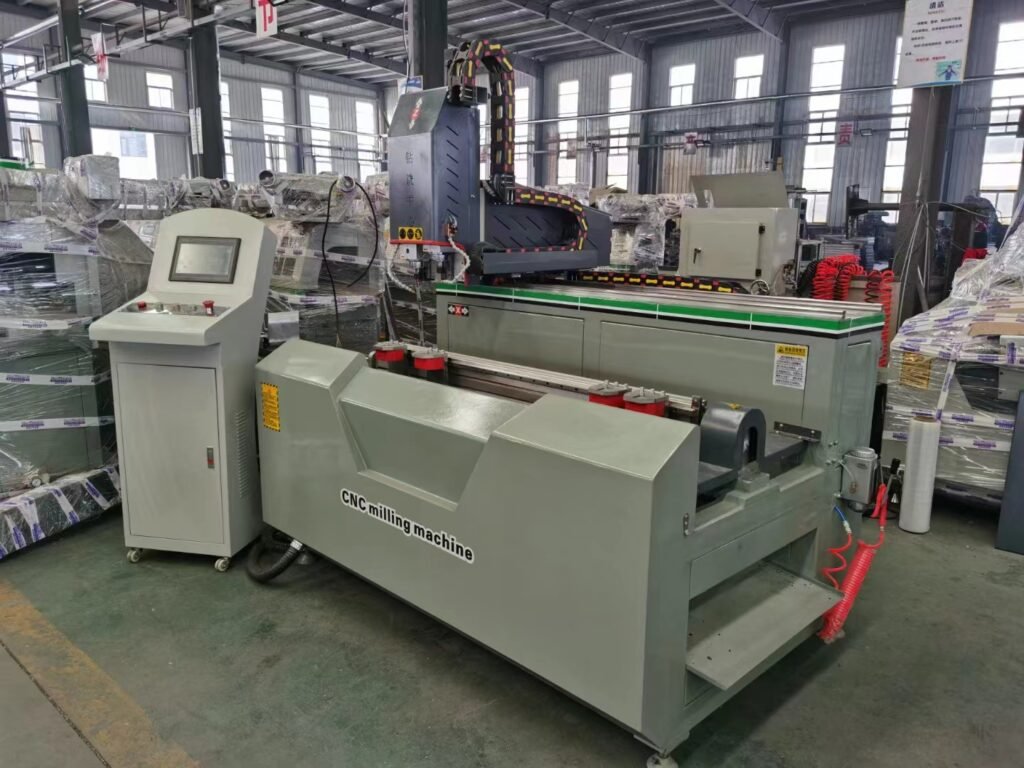Aluminum drilling and milling machines are essential tools in modern manufacturing, providing precision and efficiency when processing aluminum and its alloys. These machines are designed to create complex shapes, holes, and features in aluminum parts, which are commonly used in industries such as aerospace, automotive, electronics, and construction. This article will explore the capabilities, types, and advantages of aluminum drilling and milling machines.

1. Understanding Drilling and Milling Operations
Drilling and milling are two of the most common machining processes used in the fabrication of aluminum parts:
- Drilling: This process involves creating holes in aluminum using a rotating drill bit. Drilling machines for aluminum are designed to handle the softer nature of the metal, reducing the risk of material deformation or heat buildup.
- Milling: Milling refers to the process of removing material from a workpiece by feeding it past a rotating cutter. It can create a wide variety of features such as slots, holes, and surfaces. Milling machines for aluminum are designed to be versatile and can perform both horizontal and vertical milling operations.
2. Types of Aluminum Drilling and Milling Machines
There are several types of machines that are used for aluminum drilling and milling, each designed for specific applications:
- Vertical Milling Machines: These machines feature a vertically oriented spindle. They are highly versatile and can perform a wide range of tasks, including drilling, milling, and tapping. Vertical mills are ideal for creating complex parts with high precision.
- Horizontal Milling Machines: These machines use a horizontally oriented spindle and are often used for larger parts or parts that require heavy cutting. Horizontal mills are known for their ability to handle high volumes of material removal efficiently.
- CNC Milling Machines: Computer Numerical Control (CNC) machines automate the milling process with high precision. CNC machines for aluminum drilling and milling allow for complex designs, multi-axis operations, and repeatability, making them ideal for mass production and tight-tolerance parts.
- Radial Drilling Machines: These machines are typically used for larger aluminum components that require deep hole drilling. The radial arm of the machine can move in multiple directions to access different areas of the workpiece.
3. Key Features for Aluminum Machining
When selecting an aluminum drilling and milling machine, certain features must be considered for optimal performance:
- Speed and Feed Rates: Aluminum requires specific cutting speeds and feed rates to ensure high-quality machining. Machines designed for aluminum typically offer higher speeds and feed rates compared to those for harder metals, resulting in faster processing times and lower tool wear.
- Tooling Compatibility: Aluminum drilling and milling machines are compatible with a variety of tooling options, including high-speed steel (HSS), carbide, and coated tools. These tools are specifically designed to handle the unique properties of aluminum, such as its tendency to clog drill bits or cutters.
- Cooling Systems: Although aluminum does not generate as much heat as harder metals, it still benefits from cooling systems during the machining process. Machines with built-in coolant delivery systems help reduce the risk of material distortion and increase tool life.
- Precision and Accuracy: High-precision machines are crucial when working with aluminum, especially for applications that require tight tolerances. CNC technology enables extremely accurate machining and consistency across large production runs.
4. Advantages of Aluminum Drilling and Milling Machines
- Cost-Effectiveness: Aluminum is a relatively inexpensive metal compared to steel or titanium, making it a popular choice for cost-effective manufacturing. The ability of these machines to work efficiently with aluminum ensures that manufacturing costs remain low.
- Speed: Aluminum drilling and milling machines are designed for high-speed operations. This allows manufacturers to produce large volumes of parts quickly, meeting tight production deadlines.
- Durability and Longevity: Despite its soft nature, aluminum can be abrasive on tools. High-quality drilling and milling machines are equipped with advanced features like better cooling systems and durable tooling, extending their lifespan and reducing downtime.
- Versatility: Aluminum drilling and milling machines can handle a variety of machining operations, including drilling, tapping, and even complex multi-axis milling. This versatility makes them suitable for a broad range of applications in different industries.

5. Applications in Industries
Aluminum drilling and milling machines are used across various sectors due to aluminum’s favorable properties like lightweight, corrosion resistance, and strength-to-weight ratio. Some of the key industries benefiting from these machines include:
- Aerospace: Aluminum is widely used in the aerospace industry for the manufacturing of lightweight aircraft parts. Precision drilling and milling machines ensure that these parts meet the strict tolerances required for safety and performance.
- Automotive: The automotive industry uses aluminum extensively in components like engine blocks, wheels, and body panels. Milling machines are used to create complex features and precise dimensions in these parts.
- Electronics: Aluminum is commonly used in electronics, especially in casings for devices like smartphones, laptops, and servers. Drilling and milling machines are essential for creating intricate patterns and openings in these components.
- Construction: Aluminum is also a popular material in the construction industry, particularly for windows, doors, and framing. These parts require accurate milling and drilling to ensure proper fitting and functionality.
6. Conclusion
Aluminum drilling and milling machines are indispensable in the production of aluminum parts across multiple industries. These machines offer a combination of speed, precision, and versatility, making them ideal for handling a variety of machining tasks. As aluminum continues to be a popular choice for manufacturers seeking lightweight, durable, and cost-effective materials, the importance of advanced drilling and milling technology will only grow. By investing in high-quality machines designed for aluminum processing, manufacturers can ensure efficient production of high-quality parts that meet industry standards.


